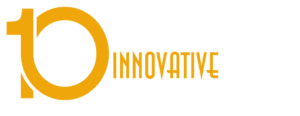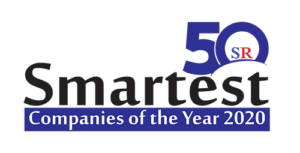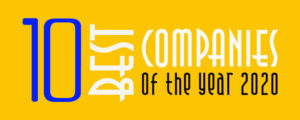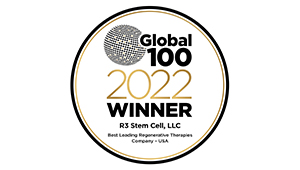Call to Schedule Free Consultation at Over 45 Centers Worldwide!
Call to Schedule Free Consultation at Over 45 Centers Worldwide!


Free Download: Stem Cell Therapy for Autism
Autism Spectrum Disorder is a neurological disorder that affects the way a person interacts with others, inhibiting their social interaction, communication, and behavioral development. Symptoms of the disorder begin early in childhood and progress throughout a person’s lifetime.
Autism is called a ‘spectrum’ disorder because symptoms vary in type and severity in different people. These usually range from challenging social skills to symptoms that at times might be confused with Obsessive Compulsive Disorder (OCD), such as repetitive behaviors. According to the DSM V, Autism Spectrum Disorder now includes conditions that were previously recognized as separate disorders such as Asperger’s syndrome, childhood disintegrative disorder or unspecified developmental disorder.
Autistic individuals tend to have the uneven skillset. While they tend to excel in one area, such as working with numbers and such, they tend to lack in others, such as social communication.
A global review conducted in 2012 estimated that 62 cases of autism were prevalent in every 10,000 people. The disorder affects males more than females in 4.3:1. As autism is an extremely complex disorder with various different sorts of symptoms, it can be reasonably assumed that autism can be triggered by multiple antecedents, yet it is believed that genetics and environmental factors seem to be the most prominent.
In some cases, genetic disorders like Down syndrome, Rett’s syndrome or fragile X syndrome may increase a person’s risk of developing autism, while in some cases, it might show comorbidity with any of these disorders. In other cases, autism spectrum disorder can be triggered by genetic mutations that can affect brain development. Due to similar genetic makeup, people who have siblings with autism could possibly also develop the disease.
Others at risk include those born to older parents or those with low birth weight. Research is still ongoing to determine whether environmental factors like complications in pregnancy or viral infections have an effect in causing autism spectrum disorder to develop in children.
Prevalence in first-degree relatives increases the chances of developing autism by 70-90%, while the prevalence in second-degree relatives increases the chances by 40-50%. The highest prevalence is found amongst identical twins, if one of them is autistic, which resides at 99%.
It is essential to point out that there is no scientific evidence linking the application of vaccines to the development of autism spectrum disorder.
Many symptoms are linked to autism spectrum disorder and can show up at different ages in a person’s life. Symptoms like reduced eye contact and lack of a response to one’s name can be exhibited within the first year of the child’s life. However, in some cases, children can develop normally for several months or years before exhibiting signs like intense aggravation, a withdrawn attitude or a loss of language skills. Most symptoms are shown within the first two years of the child’s life.
Some children show greater sensitivity to sounds, tastes, touches, smells or sights, which might seem nothing out of the ordinary to an average person. In some cases, these children might even be pained by their sensory stimuli.
Autism spectrum disorder can most easily be characterized by an inability to comprehend everyday social cues or behaviors. They are known to have either unaffected or inappropriate facial expressions that are not in accordance with the situation. They can be slow in their response to someone and can seem unable to understand or predict someone else’s actions.
Children suffering from autism also tend to have repetitive behaviors. Repeating words or phrases can be expected as well as an overly focused interest in certain topics. It is quite common for them to get upset by the slightest change in their established routine. Sleep problems and an irate nature can also develop.
For a child, the doctor observes their developmental progress through different interactions at every wellness checkup the child is scheduled to be taken to. Because autism has no physical and tangible markers, doctors may also discuss and take notes of the child’s behaviors from parents or guardians.
If any symptoms of autism spectrum disorder are recognized, the doctor may refer the case to a neurologist or a psychologist for a more detailed diagnosis. These specialists will assess the child’s cognitive and language skills, IQ and EQ, as well as the extent of the child’s dependency when performing every day age-appropriate tasks. Before making a definitive diagnosis, the doctors might run some blood tests to identify genetic markers associated with autism or to rule out other possibilities.
It is especially necessary to refer to an expert, as due to the lack of social communication on part of the child, there may be other physical problems that parents might not be aware of.
No cure for autism spectrum disorder exists and due to the complex variance of the symptoms in type and severity, no single form of treatment is effective for everyone with autism. Focus is placed on supporting the child’s learning and development by strengthening their abilities while simultaneously keeping the emergence of symptoms under control.
Treatment strategies differ on a case to case basis although some therapy is nearly always considered. Moreover, behavioral and communication therapies are recommended to cater to the social and language difficulties associated with autism. Children are taught appropriate social behaviors and interactions with others. Establishment and adherence to a set daily routine are one of the major factors of helping the individual remain calm. Sometimes, a reward system is used to help propel the learning process.
Furthermore, special family therapy sessions may also be conducted to allow the parents and loved ones to learn techniques and practices to employ to elicit a positive and constructive response from the child. Through these sessions, family members can learn effective ways to teach and promote the growth of everyday skills in the child.
Those with autism spectrum disorder are often known to respond positively to highly structured educational programs. These programs are devised by specialists who develop a set of activities to improve the cognitive and social skills of the children. Regardless of what program or set of programs is adopted, the most important considerations should be the child’s needs. Consulting a professional psychologist can help set up the required activities and programs including speech therapy or physical therapy.
Although no medication currently available can improve the symptoms of autism spectrum disorder, quite a few drugs are able to help in controlling them and keeping them in check. Medication can be prescribed to tackle hyperactivity, depression, and anxiety that can develop as a result of the disorder, as well as to deal with hypersensitivity to sensory stimuli. In extreme cases, pain medication is also prescribed.
Brand Ambassador Gallery
The USA stem cell leader offers procedures in
7 Countries including:
SUCCESS STORIES
*Outcomes will vary between individuals. No claims are being made with regenerative therapies. The FDA considers stem cell therapy experimental. See our THERAPY COMMITMENT HERE.
R3 STEM CELL MASTER CLASS
Learn everything you need to know about the ever expanding field of regenerative medicine in this 8 part series that includes over four hours of entertaining content!
R3 STEM CELL INTERNATIONAL
R3 Stem Cell International includes 45 clinics in 7 countries. These Centers of Excellence treat all types of conditions with safe, effective protocols by expert stem cell physicians.
FREE STEM CELL CONSULTATION
R3 Stem Cell offers a no cost consultation to see if you or a loved one is a candidate for regenerative cell therapies including cytokines, growth factors, exosomes, and stem cells.
PROVIDER PARTNERSHIP
The R3 Partnership Program offers providers an all-in-one regenerative practice program including marketing, consultations and booked procedures!
The information provided by R3 Stem Cell is not a substitute for professional medical advice, diagnosis, or treatment. Individual results may vary and only your medical professional can explain all the risks and potential benefits of any therapy based on your circumstances. R3 Stem Cell does not recommend or endorse any specific tests, products, procedures, opinions, or other information that may be mentioned on this website. Reliance on any information provided by R3 Stem Cell, its employees, others appearing on this website at the invitation of R3 Stem Cell, or other visitors to the website is solely at your own risk. R3 Stem Cell is not responsible for the outcome of your procedure. The FDA considers stem cell therapy experimental at this point.






CALIFORNIA
FLORIDA
GEORGIA
HAWAII
IDAHO
ILLINOIS
INDIANA
IOWA
KANSAS
KENTUCKY
LOUISIANA
MARYLAND
MASSACHUSETTS
MICHIGAN
MINNESOTA
MISSISSIPPI
MISSOURI
NEBRASKA
NEW JERSEY
NEW YORK
NEW MEXICO
NEVADA
NORTH CAROLINA
OHIO
OKLAHOMA
OREGON
PENNSYLVANIA
RHODE ISLAND
SOUTH CAROLINA
SOUTH DAKOTA
TENNESSEE
The USA stem cell leader offers procedures in
7 Countries including:
Copyright © 2017-2024 R3 Stem Cell. All Rights Reserved.